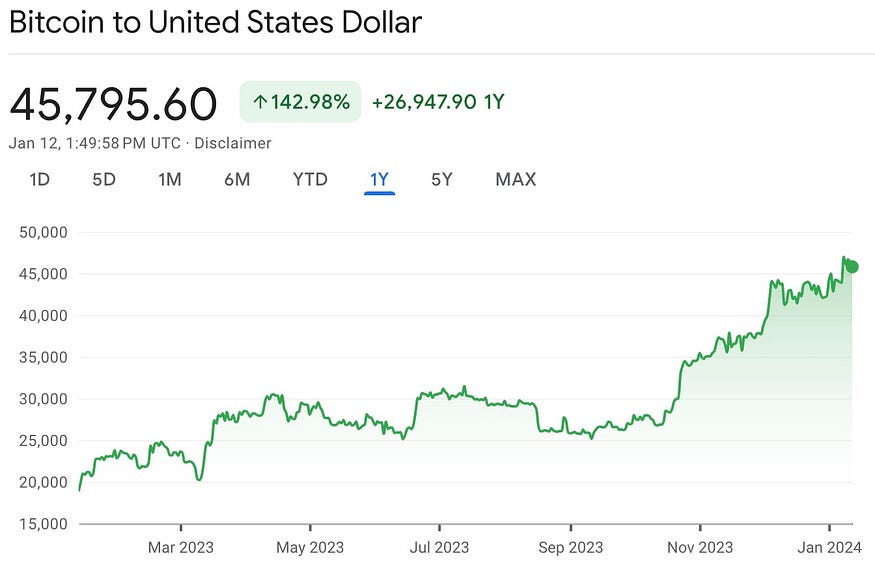Bitcoin ETFs: reasons to be cheerful

On January 10, the SEC finally approved bitcoin exchange-traded funds (ETFs).
A reluctant approval, practically “by legal imperative” but one that had already been anticipated for some time — some issuers such as Fidelity had already announced reductions in their commissions on these funds to make them more attractive — and that in just one day attracted more than $4.6 billion, offered by twelve issuers, among them some of the largest in the world such as BlackRock, Fidelity, Grayscale or Franklin Templeton.
What does it mean that investors can now buy “serious” cryptocurrencies such as Bitcoin or Ethereum through financial institutions in the form of ETFs? Firstly, they now “officially” exist as a store of value, but above all, the SEC’s approval will make them more attractive to investors who would otherwise never consider the idea of investing through dedicated exchanges or owning and managing a wallet. In short it is another step along the way to wider adoption. With the help of large investment funds, cryptocurrencies are now much less frightening for the average investor, regardless of what SEC Chairman Gary Gensler said:
“We did not approve or endorse Bitcoin. Investors should remain cautious about the myriad risks associated with Bitcoin and products whose value is tied to crypto.”
For many advocates and insiders, there’s no need for cryptocurrency-linked ETFs, and in
some cases have criticized them as a re-centralization of something that would be better distributed (obviously, by investing in a cryptocurrency fund managed by a third party, you not only accept price fluctuations, but the risks of somebody else managing your funds. We can expect more people to start using them, which will increase theirvalue. In fact, many are predicting bitcoin’s price over the course of 2024 to reach $100,000 or even $500,000, expectations that will fuel the phenomenon by attracting speculators. Throughout 2023, bitcoin’s performance as an investment was far better than that of the NASDAQ, many risky investments, or gold.







































